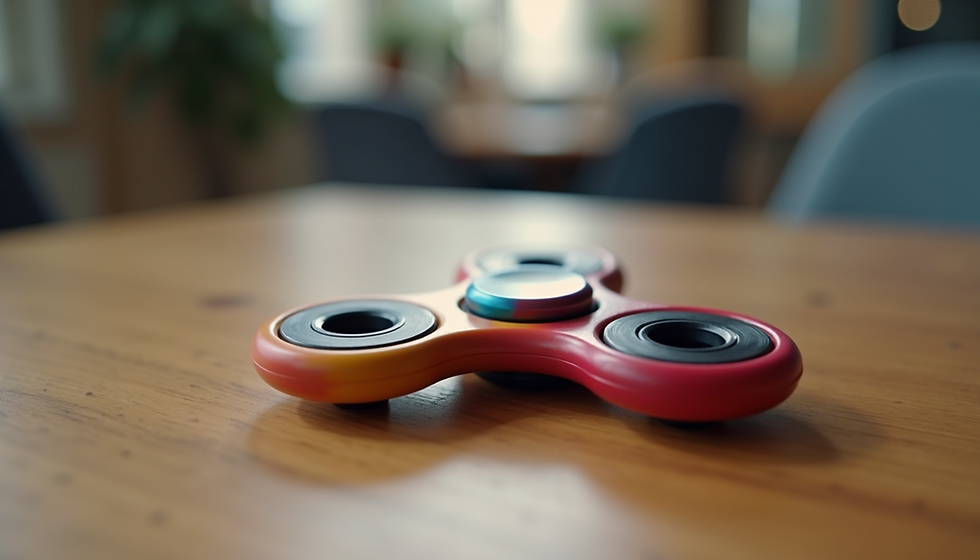Activities to Develop Fine Motor Skills
- sensoryhaven4kids
- Oct 27, 2025
- 4 min read
Watching little hands explore the world is a beautiful journey. Each tiny movement, from grasping a crayon to buttoning a shirt, reflects a growing mastery of fine motor skills. These skills are essential for everyday tasks and build the foundation for independence and confidence. I want to share some gentle, enjoyable activities that can help nurture these abilities, turning learning into play and discovery.
Simple and Fun Boost Motor Skills Activities to Try at Home
Engaging children in activities that promote hand-eye coordination and dexterity can be both rewarding and fun. Here are some ideas that I have found effective and easy to incorporate into daily routines:
Playdough Manipulation: Rolling, pinching, and shaping playdough strengthens hand muscles and encourages creativity. Try making simple shapes or pressing small objects into the dough for added sensory input.
Bead Stringing: Using large beads and a string, children can practice threading, which improves precision and concentration. Start with bigger beads and gradually move to smaller ones as skills improve.
Cutting with Scissors: Supervised cutting of paper along lines or shapes helps develop control and bilateral coordination. Choose child-safe scissors and colorful paper to keep it exciting.
Sticker Play: Peeling and sticking stickers onto paper or cards enhances finger strength and pincer grasp. Create themed sticker books or scenes to spark imagination.
Buttoning and Zipping Practice: Using dressing boards or old clothes, children can practice fastening buttons, zippers, and snaps, which are practical life skills.
These activities not only build fine motor skills but also encourage patience and focus. Remember, the goal is to make these moments joyful and stress-free.
What are the 7 Stages of Motor Development?
Understanding the stages of motor development helps us tailor activities to a child’s current abilities and needs. The seven stages typically include:
Reflexive Movements: These are automatic responses present at birth, like grasping or sucking.
Rudimentary Movements: Basic voluntary movements such as reaching and sitting up.
Fundamental Movements: Skills like crawling, walking, and running develop here.
Specialized Movements: Children begin to refine skills for specific tasks, such as throwing or catching.
Application of Movement: Skills are applied in games and sports, enhancing coordination.
Lifelong Utilization: Motor skills are used throughout life for various activities.
Compensation: Adjustments are made for any physical limitations or changes.
By recognizing these stages, we can provide appropriate challenges that encourage growth without frustration. For example, a child in the rudimentary stage might benefit from simple grasping toys, while one in the specialized stage could enjoy more complex puzzles or crafts.
Creative Ways to Encourage Fine Motor Skill Development
Incorporating fine motor skill development into everyday play can be seamless and enjoyable. Here are some creative ideas that blend learning with fun:
Nature Collages: Collect leaves, twigs, and flowers to glue onto paper. This activity promotes pincer grasp and hand-eye coordination.
Sensory Bins: Fill bins with rice, beans, or sand and hide small objects for children to find using tweezers or fingers.
Cooking Together: Stirring batter, kneading dough, or decorating cookies are excellent for strengthening hands.
Painting with Cotton Swabs: Using small tools to paint encourages precision and control.
Building Blocks and Lego: Constructing with blocks enhances spatial awareness and fine motor skills.
These activities also provide sensory input, which is especially beneficial for children with sensory needs. The tactile experience combined with movement helps build neural pathways that support motor development.

Tips for Supporting Motor Skill Growth with Patience and Positivity
Encouragement and a calm environment are key to helping children thrive in their motor skill journey. Here are some tips I find helpful:
Celebrate Small Wins: Every attempt is progress. Praise effort rather than perfection.
Create a Routine: Consistent practice helps skills become second nature.
Use Adaptive Tools: Sometimes, modified utensils or toys can make tasks easier and more enjoyable.
Be Patient: Each child develops at their own pace. Avoid rushing or comparing.
Incorporate Interests: Tailor activities to what excites the child, whether it’s animals, colors, or music.
By fostering a supportive atmosphere, children feel safe to explore and try new things, building confidence alongside their skills.
Encouraging Independence Through Everyday Tasks
Fine motor skills are not just about play; they are essential for daily independence. Encouraging children to participate in routine tasks can be empowering:
Setting the Table: Handling cutlery and plates practices coordination.
Dressing Themselves: Buttoning, zipping, and tying shoelaces build practical skills.
Cleaning Up: Picking up toys and placing them in bins develops organization and motor control.
Writing and Drawing: Early scribbling leads to handwriting skills.
These activities provide meaningful practice and help children feel capable and proud of their accomplishments.
I hope these ideas inspire you to create joyful moments of learning and growth. Remember, every small step in developing fine motor skills is a giant leap toward independence and confidence. With gentle encouragement and thoughtful activities, we can help little hands flourish in their own unique way.













Comments